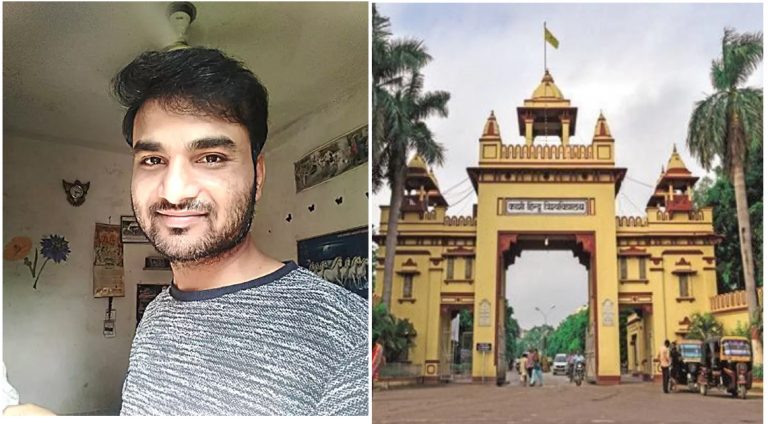
In Banaras Hindu University, 30 students are protesting outside the office of the Vice-Chancellor for 12 days. The ‘Sahitya’ (Literature Wing) of the Sanskrit Vidhya Dharm Vijnan is in a lockout, and the students spend their day reciting hymns, even carrying out a yagna, saying that they would not move until their demands are met.
What are their demands?
Simply saying the students don’t want Firoz Khan, an Islam practicing assistant professor teaching them “the studies of ancient Indian shastras, Sanskrit language and literature”. The quoted line is important because according to one of the protesters, they are against the professor’s appointment to this particular unit of the university, and not against his religion.
“This is not a normal department. It is the Sanskrit-Vidya-Dharma-Vijnan-Sankaya, where we are taught about our culture and not just the language. If he has to teach, let him go to the department of Sanskrit and teach. We cannot allow it here”, Krishan Kumar said to NDTV.
The university also has a separate department of Sanskrit that functions under the faculty of arts.
What is the university saying?
The university administration is standing behind Professor Khan’s appointment. They maintain he is the most suitable for the job and that all due procedures were followed during the appointment.
The university has issued statements twice in the last week, saying it is “committed to achieving the objectives of the BHU in providing equal educational and teaching opportunities to everyone irrespective of religion”.
What is the professor saying?
A doctorate in Sanskrit, Firoz Khan speaking to India Today said “all my life, I learnt Sanskrit and I was never made to realise I am a Muslim, but now when I am trying to teach, suddenly it has become the only subject.” He also said he doesn’t know the Quran as much as Sankrit Literature.
It is also being reported he hasn’t been seen in the university premises since the protests started.
Firoz, originally from Rajasthan grew up watching his grandfather singing bhajans (hymns) to Hindus – and learning. His father, also learned in Sanskrit would preach from a Gaushala near their home. Throughout earlier generations, they were never made to realise they were different, he maintains.




